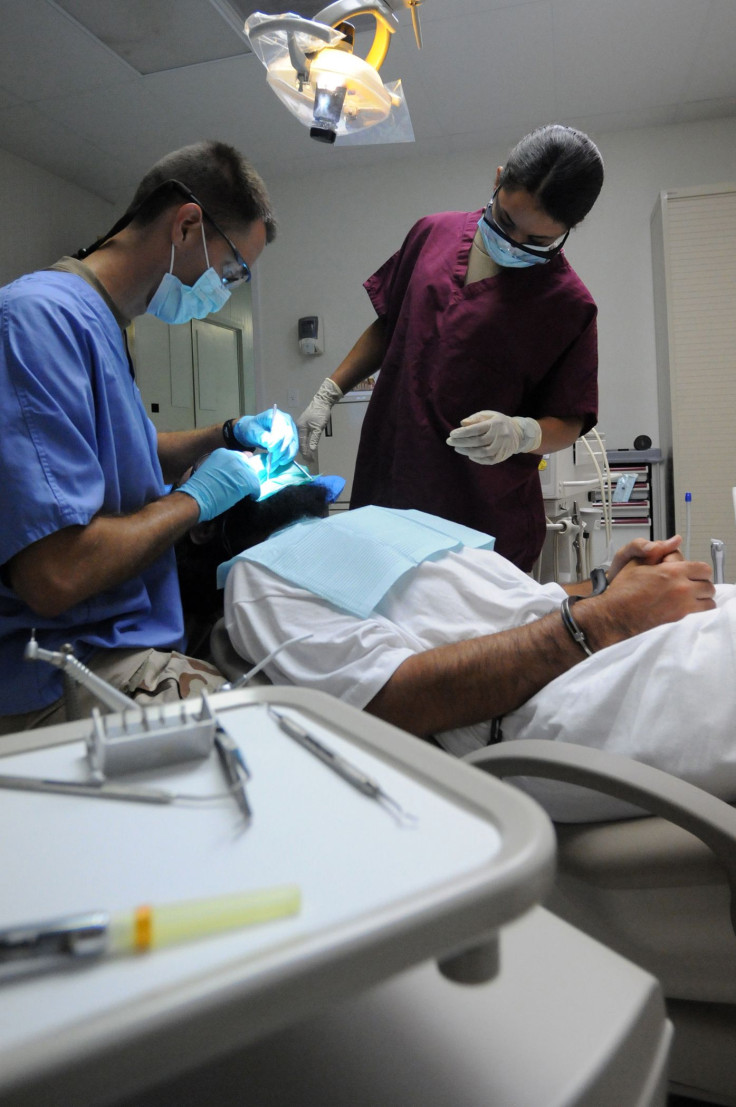Obese Guantanamo Prisoner, Tarek El-Sawah, Appeals For Release Due To Health Reasons: Should The Government Let Him Go?

A 55-year-old Egyptian prisoner is appealing for release due to health problems, including obesity, diabetes, difficulty breathing and other serious ailments. He has been imprisoned at the U.S. military prison located at Guantanamo Bay, Cuba, for 11 years.
Tarek El-Sawah, who had previously faced charges of conspiracy for terrorism which were later withdrawn, arrived at Guantanomo in May 2002 after his arrest in Afghanistan for being an al-Qaeda explosives trainer. At the time, he was 5 feet, 10 inches and weighed around 215. But by 2006, his weight had ballooned, at one point weighing over 420 pounds.
El-Sawah’s lawyers argue that the prison health system and environment is to blame for his weight gain.
Though his case may be unique, he is not the only prisoner out of the 164 total with health issues, according to the AP. Another man suffered from schizophrenia and had been in the prison psych ward for most of his decade spent at Guantanamo, medicated and dealing with other complications including diabetes. After his lawyers argued that his sickness rendered him as not a threat, a judge ordered his release.
“There are a whole slew of people with a whole slew of serious health problems,” Cori Crider, a lawyer for the human rights group Reprieve, told the AP. Crider has been meeting with Guantanomo prisoners over the course of several years.
'Excellent' Medical Care
But the U.S. government claims it provides excellent medical care to the prisoners, priding itself on having over 100 doctors, nurses and other health workers at the base. When El-Sawah’s lawyers filed an emergency motion to order the military to provide more “adequate” medical care for him, including heart disease tests and a breathing device, lawyers for the U.S. Justice Department wrote, “While (El-Sawah) is currently in poor health, his life is not in imminent danger.” They mentioned he simply needs to exercise more and eat less.
Over the course of the past decade, the U.S. military and plenty of Republicans have praised the level of medical care provided to Guantanamo prisoners. Senator John Barrasso, R-Wyoming, told ABC News in 2009 that he was fascinated at “the level even of medical care… My background is in medicine. I’m an orthopedic surgeon. They have one health care worker for every two detainees, an incredible hospital with an operating room with a quality of care that is better than many people get in the United States.”
A 2005 article posted on the U.S. Department of Defense website notes a general in charge of the facility as saying, the medical care is “as good as or better than anything we would offer our own soldiers, sailors, airmen or Marines.” It also mentioned that the medical facility included 19 inpatient beds, a physical therapy area, a pharmacy, radiology department, and a central sterilization area.
Controversy
The prison camp and its medical staff, however, have been controversial due to a track record of force-feeding prisoners on hunger strikes, a practice that is considered torture by the UN Humans Rights Commission and condemned by more than 250 Western doctors.
Earlier this year, President Obama reiterated his vow to close the prison despite opposition from Congress, stating it was a waste of taxpayer money that damaged American foreign policy. “The notion that we’re going to keep 100 individuals in no man’s land in perpetuity,” Obama said at a White House news conference, makes no sense. “All of us should reflect on why exactly are we doing this?”
The renewal of his concern came amidst another hunger strike at the prison in April of this year, with doctors in the States decrying the act of force-feeding the protestors.
El-Sawah, meanwhile, may be on the way to being released. He has received a number of recommendation letters from Guantanomo commanders, in which former generals referred to him as a unique prisoner who was “unlike the violent Islamic extremists who formed much of the population at Guantanamo,” according to the AP. Another official wrote, “Frankly, I felt Tarek was a good man on the other side who, in a different world, different time, different place, could easily be accepted as a friend or neighbor.”



























